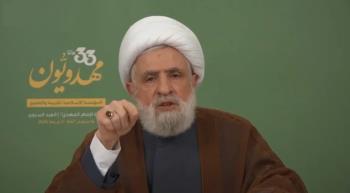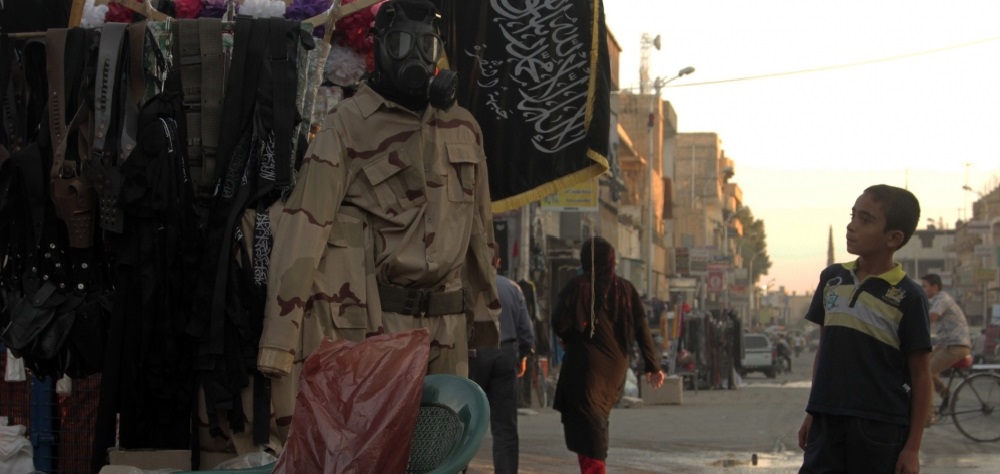Alwaght- As a step to fulfill the promise he made during his election campaign, the American President Donald Trump is hastily pressing for the assault that aims at taking Syrian city of Raqqa, the capital of the self-proclaimed caliphate, from the ISIS terrorist group. An operation through which, the analysts say, the American leader wants record ISIS defeat to his name.
To this end, Trump recently approved a plan to arm a coalition of the Kurdish militant groups, defying strong Turkish objection and frequent warnings.
Predominately gathered under the Syrian Democratic Forces (SDF) alliance which also contains fighters from other ethnic groups, the Kurdish forces are advancing into the ISIS Syria stronghold. The experts say that it is easy to suggest that sooner or later ISIS will certainly be defeated in the region. However, they note that the challenging question is about the future of Raqqa and that who will be in control of the northeastern city once it is reclaimed from the terrorists.
The Kurds are well aware that a majority of the city’s inhabitants are Arabs, and thus are not interested to see the Kurdish forces staying for a long time there, let alone administer it. Knowing this fact, the US-backed Kurds are not interested to become in control of post-ISIS Raqqa. But the main drive behind their involvement in the current liberating campaign and actually playing the role of the US infantry on the Raqqa ground is that they seek winning further credit as a major actor embroiled in the game, something that will offer them trump cards to be used on the negotiating table with the Syrian government over the country’s future.
The emerging reports maintain that Ankara has asserted to Washington that it severely opposed permanent ruling of the Kurds over Raqqa. The Americans, in response, promised Turks that the Kurdish role in Raqqa will end after recapture of the city, and that they will withdraw without thinking about dominating the city.
Such an American pledge to the Turkish leaders raises a series of Washington options for the rule of Raqqa after ISIS. The first one is US deployment of massive military units to the Syrian city to operate as a mandatory force. This administration model might pave the way for Washington to start a nation-state building process in northeastern Syria.
Earlier, the American media revealed that HR McMaster, the national security advisor of the Trump administration, has struggled to persuade the president to show a green light to dispatch of 150,000 American ground forces to Syria’s northeast.
This option is unceasingly pursued by Saudi Arabia and the Israeli regime, two backers of the anti-Assad extremist militants. This choice, they are optimistic, will help them crack the so-called "Shiite Crescent" that passes from Syria and includes Iran, Iraq, Yemen, and Lebanon.
But the experts find the scenario impossible to implement on the ground for a series of reasons. They support their claims by Trump’s campaign-time opposition to the US-led cross-border nation-state building projects. They further refer to the American experience in Iraq. The US in post-Saddam Iraq struggled to build a nation-state according to its desires, but not only the plan failed but also it cost the Americans heavily, both militarily and financially.
The third reason is associated with the international laws. Any American moves to establish a new state in Syria will be recognized violation of the sovereignty of an independent country, and will urge international community’s reactions.
There is another option that can be implemented by the US for governing Raqqa after ISIS: handing over the city's administration to the leading tribes and a local council that are expected to hold friendly relations with the Syrian government. Many reports foresee an American preference of this option for the northeastern city.
“The US military will be going in (to Raqqa) and trying to figure out who the tribal leaders are,” the Wall Street Journal quoted an American official saying on the Raqqa situation.
The unnamed US official continued to the WSJ “The (Syrian) regime knows these details. They have a natural home-field advantage and have a way of slowly getting back in (to Raqqa). We won't be in Raqqa in 2020, but the regime will be there.”
Another reason making the last choice more likely than others is related to the recent Damascus and Moscow stances on the ongoing Raqqa campaign. Last Monday, the Syrian Foreign Minister Walid Muallem complemented the SDF’s fight against ISIS at a press conference in Damascus in which he also described the Kurdish militant forces as legitimate.
A day after the Syrian FM's comments, the Russian Deputy Foreign Minister Mikhail Bogdanov said his country backed the establishment of local councils to run the territory taken from ISIS, but added that they must not circumvent the Syrian government’s authority, according to Russia’s Interfax news agency.



























